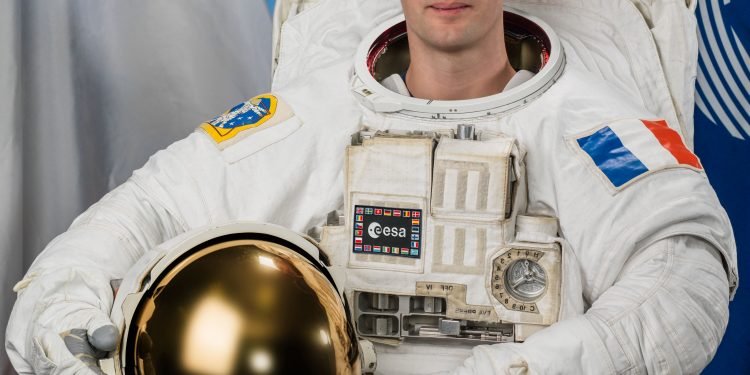Brussels (Brussels Morning) French astronaut Thomas Pesquet is scheduled to depart for his second six-month mission to the International Space Station (ISS) on Thursday. In an interview with RFI and France24, the European mission commander spoke about his responsibilities and mission objectives.
“I’m not going to lie. It’s a joy to be up there in space”, Pesquet said, in making final preparations to command a group of four international astronauts as part of Expedition 65/66. He previously served as a flight engineer on Expedition 50/51, remaining on the station from November 2016 to June 2017.
Recycled craft
“The physical experience of floating is very pleasant… you have to get used to it, but it’s wonderful”, Pesquet observed, declared, relishing the prospect of having a mission, overseeing scientific experiments and taking care of the ISS.
The four-astronaut team, including two NASA astronauts and one JAXA astronaut, is scheduled to launch on Thursday from the Cape Canaveral site in Florida, aboard the second manned Crew Dragon flight. The Crew-2 mission will dock the second SpaceX commercial crew capsule with the ISS. Both the capsule and its rocket booster are being re-used, the capsule having been used originally as part of the Demo-2 mission, and the booster in the Crew-1 mission.
Pesquet has named the mission “Apha”, after Alpha Centauri, the closest star system to Earth, in keeping with the French tradition of naming missions after stars or constellations. Once onboard the station, Pesquet will participate in more than 200 scientific and engineering experiments.
Edible packaging
One experiment focuses on waste-reduction technology for use in the station and includes the use of edible packaging as part of the astronauts’ meal provisions. “That’s going to divide the use of storage space and waste in half,” Pesquet noted, pointing out how the technology might have potential application on Earth in the future as a way to reduce plastic waste.
Part of the mission will involve sending status updates to RFI and France24, as part of the European Space Agency (ESA) and French national space agency’s public outreach. “It’s important to explain what it does”, Pesquet said. “Because it’s done with public budgets, with public money. It’s not always easy to understand, even for us… But it’s up to us to explain this work, to translate it into everyday terms as much as possible”.




